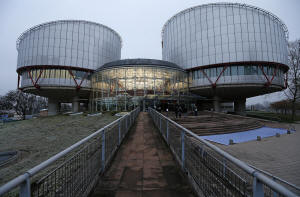|
The law has been condemned by victims' families, human-rights
groups and all major political parties on the island of Ireland,
including British unionist and Irish nationalist. It came into
force last September.
The Irish government, which submitted the case on Jan. 17,
argues that certain provisions of the law are not compatible
with the European Convention, the ECHR statement said.
Britain has halted prosecutions of those involved in the
"Troubles" period, saying they are unlikely to succeed and an
independent body should be set up instead.
Britain argues that prosecutions linked to the events of up to
55 years ago are increasingly unlikely to lead to convictions
and that the legislation is needed to draw a line under the
conflict.
When announcing its decision to take the British government to
court over the law last month, Dublin had said it had no other
recourse but to take legal action as London had shut off any
possibility of a political resolution.
Britain called the Irish government's challenge "unnecessary."
Around 3,600 people died in three decades of confrontation
between Irish nationalist militants seeking a united Ireland,
pro-British "loyalist" paramilitaries and the British military.
The conflict largely ended with a 1998 peace deal.
(Reporting by William James, writing by Muvija M; editing by
Michael Holden)
[© 2024 Thomson Reuters. All rights
reserved.]
Copyright 2022 Reuters. All rights reserved. This material may
not be published, broadcast, rewritten or redistributed.
Thompson Reuters is solely responsible for this content.

|
|




